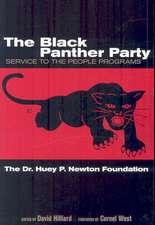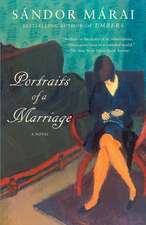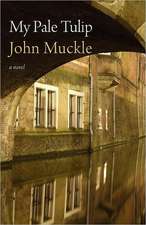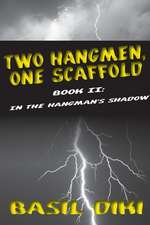Imperium in Imperio: Modern Library Classics (Paperback)
A. J. Verdelle Autor Sutton Griggs Cornel Westen Limba Engleză Paperback – 31 dec 2003
Din seria Modern Library Classics (Paperback)
-
 Preț: 62.93 lei
Preț: 62.93 lei -
 Preț: 108.59 lei
Preț: 108.59 lei -
 Preț: 96.71 lei
Preț: 96.71 lei -
 Preț: 74.62 lei
Preț: 74.62 lei -
 Preț: 98.78 lei
Preț: 98.78 lei -
 Preț: 86.54 lei
Preț: 86.54 lei -
 Preț: 75.50 lei
Preț: 75.50 lei -
 Preț: 114.93 lei
Preț: 114.93 lei -
 Preț: 138.81 lei
Preț: 138.81 lei -
 Preț: 56.52 lei
Preț: 56.52 lei -
 Preț: 75.50 lei
Preț: 75.50 lei -
 Preț: 56.71 lei
Preț: 56.71 lei -
 Preț: 65.15 lei
Preț: 65.15 lei -
 Preț: 81.47 lei
Preț: 81.47 lei -
 Preț: 89.31 lei
Preț: 89.31 lei -
 Preț: 111.11 lei
Preț: 111.11 lei -
 Preț: 117.16 lei
Preț: 117.16 lei -
 Preț: 55.66 lei
Preț: 55.66 lei - 5%
 Preț: 100.14 lei
Preț: 100.14 lei -
 Preț: 112.38 lei
Preț: 112.38 lei -
 Preț: 84.98 lei
Preț: 84.98 lei -
 Preț: 116.94 lei
Preț: 116.94 lei -
 Preț: 75.68 lei
Preț: 75.68 lei -
 Preț: 86.42 lei
Preț: 86.42 lei -
 Preț: 137.99 lei
Preț: 137.99 lei -
 Preț: 73.64 lei
Preț: 73.64 lei -
 Preț: 127.85 lei
Preț: 127.85 lei -
 Preț: 75.46 lei
Preț: 75.46 lei -
 Preț: 106.63 lei
Preț: 106.63 lei -
 Preț: 109.29 lei
Preț: 109.29 lei -
 Preț: 70.53 lei
Preț: 70.53 lei -
 Preț: 83.94 lei
Preț: 83.94 lei -
 Preț: 70.53 lei
Preț: 70.53 lei -
 Preț: 95.10 lei
Preț: 95.10 lei -
 Preț: 135.68 lei
Preț: 135.68 lei -
 Preț: 105.16 lei
Preț: 105.16 lei -
 Preț: 75.90 lei
Preț: 75.90 lei -
 Preț: 113.03 lei
Preț: 113.03 lei -
 Preț: 88.47 lei
Preț: 88.47 lei -
 Preț: 66.01 lei
Preț: 66.01 lei -
 Preț: 51.16 lei
Preț: 51.16 lei -
 Preț: 45.18 lei
Preț: 45.18 lei -
 Preț: 46.00 lei
Preț: 46.00 lei -
 Preț: 56.71 lei
Preț: 56.71 lei -
 Preț: 50.10 lei
Preț: 50.10 lei -
 Preț: 50.91 lei
Preț: 50.91 lei -
 Preț: 47.23 lei
Preț: 47.23 lei -
 Preț: 51.57 lei
Preț: 51.57 lei -
 Preț: 46.17 lei
Preț: 46.17 lei
Preț: 117.32 lei
Nou
Puncte Express: 176
Preț estimativ în valută:
22.45€ • 23.44$ • 18.58£
22.45€ • 23.44$ • 18.58£
Carte disponibilă
Livrare economică 14-28 martie
Preluare comenzi: 021 569.72.76
Specificații
ISBN-13: 9780812971606
ISBN-10: 0812971604
Pagini: 208
Dimensiuni: 132 x 203 x 13 mm
Greutate: 0.18 kg
Ediția:Modern Library.
Editura: Modern Library
Seria Modern Library Classics (Paperback)
ISBN-10: 0812971604
Pagini: 208
Dimensiuni: 132 x 203 x 13 mm
Greutate: 0.18 kg
Ediția:Modern Library.
Editura: Modern Library
Seria Modern Library Classics (Paperback)
Notă biografică
Author of the Preface:
A. J. Verdelle, lecturer in the creative writing program at Princeton, is the author of The Good Negress.
Introducer:
Cornel West, University Professor of Religion at Princeton, is the author of Race Matters and The American Evasion of Philosophy, and is the co-author of The Future of American Progressivism.
A. J. Verdelle, lecturer in the creative writing program at Princeton, is the author of The Good Negress.
Introducer:
Cornel West, University Professor of Religion at Princeton, is the author of Race Matters and The American Evasion of Philosophy, and is the co-author of The Future of American Progressivism.
Extras
To the Public
The papers which are herewith submitted to you for your perusal and consideration, were delivered into my hands by Mr. Berl Trout.
The papers will speak for themselves, but Mr. Trout now being dead I feel called upon to say a word concerning him.
Mr. Berl Trout was Secretary of State in the Imperium In Imperio, from the day of its organization until the hour of his sad death. He was, therefore, thoroughly conversant with all of the details of that great organization.
He was a warm personal friend of both Bernard and Belton, and learned from their own lips the stories of their eventful lives.
Mr. Trout was a man noted for his strict veracity and for the absolute control that his conscience exercised over him.
Though unacquainted with the Imperium In Imperio I was well acquainted with Berl, as we fondly called him. I will vouch for his truthfulness anywhere.
Having perfect faith in the truthfulness of his narrative I have not hesitated to fulfil his dying request by editing his Ms., and giving it to the public. There are other documents in my possession tending to confirm the assertions made in his narrative. These documents were given me by Mr. Trout, so that, in case an attempt is made to pronounce him a liar, I might defend his name by coming forward with indisputable proofs of every important statement.
Very respectfully,
Sutton E. Griggs,
Berkley, Va.
March 1, 1899.
Berl Trout’s Dying Declaration
I am a traitor. I have violated an oath that was as solemn and binding as any ever taken by man on earth.
I have trampled under my feet the sacred trust of a loving people, and have betrayed secrets which were dearer to them than life itself.
For this offence, regarded the world over as the most detestable of horrors, I shall be slain.
Those who shall be detailed to escort my foul body to its grave are required to walk backwards with heads averted.
On to-morrow night, the time of my burial, the clouds should gather thick about the queenly moon to hide my funeral procession from her view, for fear that she might refuse to longer reign over a land capable of producing such a wretch as I.
In the bottom of some old forsaken well, so reads our law, I shall be buried, face downward, without a coffin; and my body, lying thus, will be transfixed with a wooden stave.
Fifty feet from the well into which my body is lowered, a red flag is to be hoisted and kept floating there for time unending, to warn all generations of men to come not near the air polluted by the rotting carcass of a vile traitor.
Such is my fate. I seek not to shun it. I have walked into odium with every sense alert, fully conscious of every step taken.
While I acknowledge that I am a traitor, I also pronounce myself a patriot.
It is true that I have betrayed the immediate plans of the race to which I belong; but I have done this in the interest of the whole human family—of which my race is but a part.
My race may, for the time being, shower curses upon me; but eventually all races, including my own, shall call me blessed.
The earth, in anger, may belch forth my putrid flesh with volcanic fury, but the out-stretched arms of God will receive my spirit as a token of approval of what I have done.
With my soul feasting on this happy thought, I send this revelation to mankind and yield my body to the executioner to be shot until I am dead.
Though death stands just before me, holding before my eyes my intended shroud woven of the cloth of infamy itself, I shrink not back.
Yours, doomed to die,
Berl Trout.
CHAPTER I
A Small Beginning
“Cum er long hunny an’ let yer mammy fix yer ’spectabul, so yer ken go to skule. Yer mammy is ’tarmined ter gib yer all de book larning dar is ter be had eben ef she has ter lib on bred an’ herrin’s, an’ die en de a’ms house.”
These words came from the lips of a poor, ignorant negro woman, and yet the determined course of action which they reveal vitally affected the destiny of a nation and saved the sun of the Nineteenth Century, proud and glorious, from passing through, near its setting, the blackest and thickest and ugliest clouds of all its journey; saved it from ending the most brilliant of brilliant careers by setting, with a shudder of horror, in a sea of human blood.
Those who doubt that such power could emanate from such weakness; or, to change the figure, that such a tiny star could have dimensions greater than those of earth, may have every vestige of doubt removed by a perusal of this simple narrative.
Let us now acquaint ourselves with the circumstances under which the opening words of our story were spoken. To do this, we must need lead our readers into humble and commonplace surroundings, a fact that will not come in the nature of a surprise to those who have traced the proud, rushing, swelling river to the mountain whence it comes trickling forth, meekly and humbly enough.
The place was Winchester, an antiquated town, located near the northwestern corner of the State of Virginia.
In October of the year 1867, the year in which our story begins, a white man by the name of Tiberius Gracchus Leonard had arrived in Winchester, and was employed as teacher of the school for colored children.
Mrs. Hannah Piedmont, the colored woman whom we have presented to our readers as addressing her little boy, was the mother of five children,—three girls and two boys. In the order of their ages, the names of her children were: James Henry, aged fifteen, Amanda Ann, aged thirteen, Eliza Jane, aged eleven, Belton, aged eight, and Celestine, aged five. Several years previous to the opening of our history, Mr. Piedmont had abandoned his wife and left her to rear the children alone.
School opened in October, and as fast as she could get books and clothing Mrs. Piedmont sent her children to school. James Henry, Amanda Ann, and Eliza Jane were sent at about a week’s interval. Belton and Celestine were then left—Celestine being regarded as too young to go. This morning we find Belton’s mother preparing him for school, and we shall stand by and watch the preparations.
The house was low and squatty and was built of rock. It consisted of one room only, and over this there was a loft, the hole to climb into which was in plain view of any one in the room. There was only one window to the house and that one was only four feet square. Two panes of this were broken out and the holes were stuffed with rags. In one corner of the room there stood a bed in which Mrs. Piedmont and Amanda Ann slept. Under this was a trundle bed in which Eliza Jane and Celestine slept at the head, while Belton slept at the foot. James Henry climbed into the loft and slept there on a pallet of straw. The cooking was done in a fireplace which was on the side of the house opposite the window. Three chairs, two of which had no backs to them, completed the articles in the room.
In one of these chairs Mrs. Piedmont was sitting, while Belton stood before her all dressed and ready to go to school, excepting that his face was not washed.
It might be interesting to note his costume. The white lady for whom Mrs. Piedmont washed each week had given her two much-torn pairs of trousers, discarded by her young son. One pair was of linen and the other of navy blue. A leg from each pair was missing; so Mrs. Piedmont simply transferred the good leg of the linen pair to the suit of the navy blue, and dressed the happy Belton in that suit thus amended. His coat was literally a conglomeration of patches of varying sizes and colors. If you attempted to describe the coat by calling it by the name of the color that you thought predominated, at least a half dozen aspirants could present equal claims to the honor. One of Belton’s feet was encased in a wornout slipper from the dainty foot of some young woman, while the other wore a turned over boot left in town by some farmer lad who had gotten himself a new pair. His hat was in good condition, being the summer straw last worn by a little white playfellow (when fall came on, this little fellow kindly willed his hat to Belton, who, in return for this favor, was to black the boy’s shoes each morning during the winter).
Belton’s mother now held in her hand a wet cloth with which she wished to cleanse his face, the bacon skin which he gnawed at the conclusion of his meal having left a circle of grease around his lips. Belton did not relish the face washing part of the programme (of course hair combing was not even considered). Belton had one characteristic similar to that of oil. He did not like to mix with water, especially cold water, such as was on that wet cloth in his mother’s hand. However, a hint in reference to a certain well-known leather strap, combined with the offer of a lump of sugar, brought him to terms.
His face being washed, he and his mother marched forth to school, where he laid the foundation of the education that served him so well in after life.
A man of tact, intelligence, and superior education moving in the midst of a mass of ignorant people, ofttimes has a sway more absolute than that of monarchs.
Belton now entered the school-room, which in his case proves to be the royal court, whence he emerges an uncrowned king.
The papers which are herewith submitted to you for your perusal and consideration, were delivered into my hands by Mr. Berl Trout.
The papers will speak for themselves, but Mr. Trout now being dead I feel called upon to say a word concerning him.
Mr. Berl Trout was Secretary of State in the Imperium In Imperio, from the day of its organization until the hour of his sad death. He was, therefore, thoroughly conversant with all of the details of that great organization.
He was a warm personal friend of both Bernard and Belton, and learned from their own lips the stories of their eventful lives.
Mr. Trout was a man noted for his strict veracity and for the absolute control that his conscience exercised over him.
Though unacquainted with the Imperium In Imperio I was well acquainted with Berl, as we fondly called him. I will vouch for his truthfulness anywhere.
Having perfect faith in the truthfulness of his narrative I have not hesitated to fulfil his dying request by editing his Ms., and giving it to the public. There are other documents in my possession tending to confirm the assertions made in his narrative. These documents were given me by Mr. Trout, so that, in case an attempt is made to pronounce him a liar, I might defend his name by coming forward with indisputable proofs of every important statement.
Very respectfully,
Sutton E. Griggs,
Berkley, Va.
March 1, 1899.
Berl Trout’s Dying Declaration
I am a traitor. I have violated an oath that was as solemn and binding as any ever taken by man on earth.
I have trampled under my feet the sacred trust of a loving people, and have betrayed secrets which were dearer to them than life itself.
For this offence, regarded the world over as the most detestable of horrors, I shall be slain.
Those who shall be detailed to escort my foul body to its grave are required to walk backwards with heads averted.
On to-morrow night, the time of my burial, the clouds should gather thick about the queenly moon to hide my funeral procession from her view, for fear that she might refuse to longer reign over a land capable of producing such a wretch as I.
In the bottom of some old forsaken well, so reads our law, I shall be buried, face downward, without a coffin; and my body, lying thus, will be transfixed with a wooden stave.
Fifty feet from the well into which my body is lowered, a red flag is to be hoisted and kept floating there for time unending, to warn all generations of men to come not near the air polluted by the rotting carcass of a vile traitor.
Such is my fate. I seek not to shun it. I have walked into odium with every sense alert, fully conscious of every step taken.
While I acknowledge that I am a traitor, I also pronounce myself a patriot.
It is true that I have betrayed the immediate plans of the race to which I belong; but I have done this in the interest of the whole human family—of which my race is but a part.
My race may, for the time being, shower curses upon me; but eventually all races, including my own, shall call me blessed.
The earth, in anger, may belch forth my putrid flesh with volcanic fury, but the out-stretched arms of God will receive my spirit as a token of approval of what I have done.
With my soul feasting on this happy thought, I send this revelation to mankind and yield my body to the executioner to be shot until I am dead.
Though death stands just before me, holding before my eyes my intended shroud woven of the cloth of infamy itself, I shrink not back.
Yours, doomed to die,
Berl Trout.
CHAPTER I
A Small Beginning
“Cum er long hunny an’ let yer mammy fix yer ’spectabul, so yer ken go to skule. Yer mammy is ’tarmined ter gib yer all de book larning dar is ter be had eben ef she has ter lib on bred an’ herrin’s, an’ die en de a’ms house.”
These words came from the lips of a poor, ignorant negro woman, and yet the determined course of action which they reveal vitally affected the destiny of a nation and saved the sun of the Nineteenth Century, proud and glorious, from passing through, near its setting, the blackest and thickest and ugliest clouds of all its journey; saved it from ending the most brilliant of brilliant careers by setting, with a shudder of horror, in a sea of human blood.
Those who doubt that such power could emanate from such weakness; or, to change the figure, that such a tiny star could have dimensions greater than those of earth, may have every vestige of doubt removed by a perusal of this simple narrative.
Let us now acquaint ourselves with the circumstances under which the opening words of our story were spoken. To do this, we must need lead our readers into humble and commonplace surroundings, a fact that will not come in the nature of a surprise to those who have traced the proud, rushing, swelling river to the mountain whence it comes trickling forth, meekly and humbly enough.
The place was Winchester, an antiquated town, located near the northwestern corner of the State of Virginia.
In October of the year 1867, the year in which our story begins, a white man by the name of Tiberius Gracchus Leonard had arrived in Winchester, and was employed as teacher of the school for colored children.
Mrs. Hannah Piedmont, the colored woman whom we have presented to our readers as addressing her little boy, was the mother of five children,—three girls and two boys. In the order of their ages, the names of her children were: James Henry, aged fifteen, Amanda Ann, aged thirteen, Eliza Jane, aged eleven, Belton, aged eight, and Celestine, aged five. Several years previous to the opening of our history, Mr. Piedmont had abandoned his wife and left her to rear the children alone.
School opened in October, and as fast as she could get books and clothing Mrs. Piedmont sent her children to school. James Henry, Amanda Ann, and Eliza Jane were sent at about a week’s interval. Belton and Celestine were then left—Celestine being regarded as too young to go. This morning we find Belton’s mother preparing him for school, and we shall stand by and watch the preparations.
The house was low and squatty and was built of rock. It consisted of one room only, and over this there was a loft, the hole to climb into which was in plain view of any one in the room. There was only one window to the house and that one was only four feet square. Two panes of this were broken out and the holes were stuffed with rags. In one corner of the room there stood a bed in which Mrs. Piedmont and Amanda Ann slept. Under this was a trundle bed in which Eliza Jane and Celestine slept at the head, while Belton slept at the foot. James Henry climbed into the loft and slept there on a pallet of straw. The cooking was done in a fireplace which was on the side of the house opposite the window. Three chairs, two of which had no backs to them, completed the articles in the room.
In one of these chairs Mrs. Piedmont was sitting, while Belton stood before her all dressed and ready to go to school, excepting that his face was not washed.
It might be interesting to note his costume. The white lady for whom Mrs. Piedmont washed each week had given her two much-torn pairs of trousers, discarded by her young son. One pair was of linen and the other of navy blue. A leg from each pair was missing; so Mrs. Piedmont simply transferred the good leg of the linen pair to the suit of the navy blue, and dressed the happy Belton in that suit thus amended. His coat was literally a conglomeration of patches of varying sizes and colors. If you attempted to describe the coat by calling it by the name of the color that you thought predominated, at least a half dozen aspirants could present equal claims to the honor. One of Belton’s feet was encased in a wornout slipper from the dainty foot of some young woman, while the other wore a turned over boot left in town by some farmer lad who had gotten himself a new pair. His hat was in good condition, being the summer straw last worn by a little white playfellow (when fall came on, this little fellow kindly willed his hat to Belton, who, in return for this favor, was to black the boy’s shoes each morning during the winter).
Belton’s mother now held in her hand a wet cloth with which she wished to cleanse his face, the bacon skin which he gnawed at the conclusion of his meal having left a circle of grease around his lips. Belton did not relish the face washing part of the programme (of course hair combing was not even considered). Belton had one characteristic similar to that of oil. He did not like to mix with water, especially cold water, such as was on that wet cloth in his mother’s hand. However, a hint in reference to a certain well-known leather strap, combined with the offer of a lump of sugar, brought him to terms.
His face being washed, he and his mother marched forth to school, where he laid the foundation of the education that served him so well in after life.
A man of tact, intelligence, and superior education moving in the midst of a mass of ignorant people, ofttimes has a sway more absolute than that of monarchs.
Belton now entered the school-room, which in his case proves to be the royal court, whence he emerges an uncrowned king.
Recenzii
“A powerful, moving story . . . This new edition
should restore Griggs to his rightful place among black
intellectuals and protest novelists.”
—John Stauffer, Frederick Douglass Prize winner for The Black Hearts of Men
should restore Griggs to his rightful place among black
intellectuals and protest novelists.”
—John Stauffer, Frederick Douglass Prize winner for The Black Hearts of Men
















